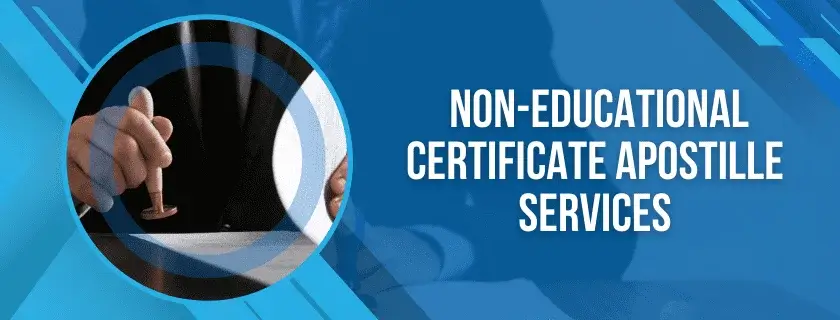
Ecuador Apostille
An apostille in Ecuador is a type of authentication used in nations that sign the Hague Convention to confirm the legitimacy of official documents. An Ecuador apostille makes it easier for people in other countries to recognize papers from other countries.
The Republic of Ecuador, sometimes called Ecuador, accepts apostilles for the authentication of official documents because it is a signatory to the Hague Convention.
There are specific procedures that need to be followed to receive an apostille in Ecuador. The first step is ensuring the document you want to authenticate is a public document. Birth certificates, marriage certificates, and diplomas are a few general documents.
Documents required for Ecuador Certificate Apostille are as follows:
- Original Documents
- Copy of Passport
The following document categories must be submitted for Apostille in Ecuador:
- Educational Documents
- Non-Educational or Personal Documents
- Commercial Documents
As part of the Ecuador Apostille procedure for educational documents, the appropriate authorities must certify the candidate's educational credentials. Your academic credentials, such as your transcripts, diplomas, and degree certificates, are included in your educational certifications.
Examples include records about an individual's personal information, such as birth, marriage, and death certificates, offer letters, experience letters, certificates of registration and medical care, and other non-academic or personal records.
Documentation is only needed when travelling abroad for business or to launch a business. Examples of commercial documents are export invoices, powers of attorney, certificates of origin, packaging lists, analytical reports, and certificates of incorporation.
It would help if you carried out the following procedures to get an apostille in Ecuador:
- Gather your documents: Ensure that the document you want to apostille is an original or a certified copy issued by the appropriate authority. This category includes public documents that need to be authenticated, such as birth certificates, marriage certificates, and academic degrees.
- Notarization: You should have your document notarized by a public notary before submitting it for an apostille. This phase confirms the document's legitimacy and provides the framework for the apostille procedure.
- Apostille from SDM: The Sub-Divisional Magistrate (SDM) in the subdivision where the document was issued or where the notary is registered receives the copy after the state-level Apostille. The SDM confirms the notary's signature and the document's validity.
- Apostille from the Ministry of External Affairs: The document must be presented to the Ministry of External Affairs (MEA) of the governing body of India after it has been validated or attested by the proper authorities. For Indian documents intended for use in nations that are signatories to the Hague Apostille Convention, apostilles must be issued by the MEA.
- Translation (if required): If your document is not in Spanish, a professional translator may need to translate it into Spanish. The original or certified copy of the paper should have the translation attached.
The Apostille will be applied to your original or certified copy of the document, ensuring its validity and valid for use in countries that have signed the Hague Apostille Convention.
It is crucial to remember that only nations that have ratified the Hague Apostille Convention may use an apostille issued in Ecuador. You may need to use a different procedure if you need authentication for a nation, not a party to the convention.
Obtaining an Ecuador apostille entails preparing the proper paperwork, notarizing it if necessary, delivering it to the SDM and MEA, and providing enough time for processing. These are steps in getting an apostille in Ecuador.
When the Apostille is granted, it validates your document's legitimacy and makes it acceptable for use in nations that adhere to the Hague Apostille Convention.
Some general purposes of Ecuador Certificate Apostille:
- It needs for obtaining a job.
- Migration purpose is the another aim of this Apostille.
- Immigrant students obtain this Apostille for higher education purposes.
- It is compulsory to start a new business in abroad.
- Getting a Ecuador visa is the other purpose of this Apostille.
Educational Certificate :
- Educational documentation provides job opportunities in foreign countries.
- It is also mandatory for attending MOH (Ministry of Health) and DOH (Dept. Of Health) examinations.
- Every country asks previous education certificate apostille before higher education.
- Academic documentation will help you to obtain equivalent documents.
Non Educational Certificate :
- Migration certificate and marriage certificate apostille is required for attaining a family visa and residence visa.
- Every student under the age of 18 should attest their birth certificate for school admission purposes.
- Experience document Apostille will make you eligible for getting a job.
Commercial Document :
- Power of attorney legalization is a necessary procedure for selling an abroad property.
- Commercial document Apostille will also make you eligible for open a foreign bank account.
- It is also needed for starting a new company in abroad.

